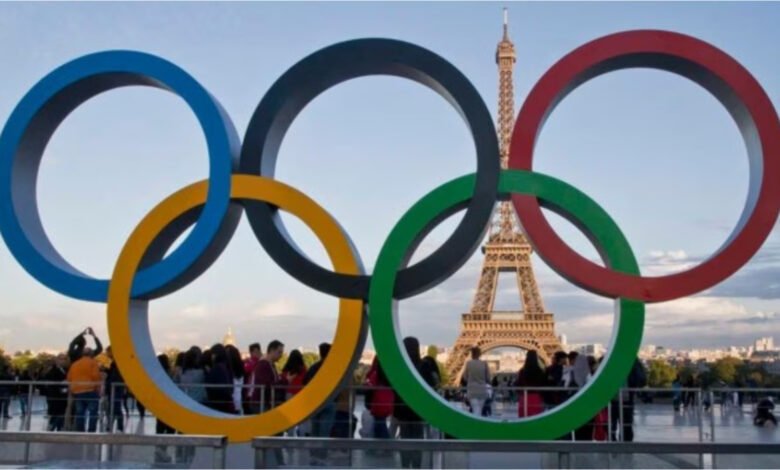India’s Olympic bid: Saudi Arabia, Qatar, Turkey, Indonesia among major competitors | Sport-others News

The Indian Olympic Association (IOC) submitting a ‘Letter of Intent’ is the first concrete step towards possibly bringing the 2036 Summer Games to the country.The letter to the International Olympic Committee’s (IOC) Future Host Commission on October 1 signals the formal intention to stage the Summer Olympics and Paralympics in India after months of informal dialogue with the world body.
However, India is likely to face stiff competition to its bid as IOC president Thomas Bach has said that the number of countries interested in hosting the 2036 edition is in “double digits”.
The competition
Over the past year, the countries that have shown serious interest in hosting the 2036 Games have been Saudi Arabia, Qatar, Indonesia, Chile, and Turkey.
India’s main competitors are likely to be Saudi Arabia and Qatar as there is an unwritten rule of rotation of continents with the 2036 Games earmarked as Asia’s turn after Paris 2024 (Europe), Los Angeles 2028 (Americas) and Brisbane 2032 (Oceania). That being said, it’s still an unwritten rule so no candidate can be discounted.
Qatar
Qatar may turn out to be the stiffest challenge. Despite being unsuccessful in its bids for the Olympics in 2016 and 2020, the tiny Gulf kingdom has since invested in world-class training facilities and top-notch sporting infrastructure. The country elevated its global profile after successfully hosting major international sporting events, including the FIFA World Cup in 2022.It has yet to bid for the 2036 Olympics officially, but several of its officials have expressed confidence that the country can successfully host any mega sporting event in the future.
Saudi Arabia
Saudi Arabia has poured significant resources into global sports and infrastructure in recent years, signalling its intent to host mega events, and is reportedly planning a bid for the 2036 Games.
anbul (Turkey)
anbul is banking on its experience in hosting major international sporting events. The Turkish metropolis that connects Europe and Asia has been an Olympic Games candidate city four times without success. It will host the 2027 European Games, the continent’s biggest multi-sports event, and will co-host the 2032 European Championship in football jointly with Italy.
Indonesia
Indonesia has also been quite active in its bid for the Olympics. A delegation with observer status visited the Paris 2024 Games. Indonesia’s inclusion in the race was confirmed when Bach welcomed the country’s readiness to bid at the G20 summit in Bali in November 2022.
What next for India?
After the submission of the ‘Letter of Intent’, India moves from ‘Informal Dialogue’ to the ‘Continuous Dialogue’ stage of the host election process. In this stage, the IOC conducts a ‘feasibility study’ of the progress of projects associated with the Games in the potential host. Independent sources will be consulted on a wide-ranging number of issues, including human rights, Business for Social Responsibility (BSR), and sustainability, through the International Union for Conservation of Nature (IUCN).
When it’s felt that a project is ready to move to the next stage, the Future Host Commission can recommend to the IOC Executive Board (EB) to open a Targeted Dialogue for a specific edition/year. From this point, the Interested Party is known as a “Preferred Host” for the Games edition.At the end of the Targeted Dialogue, following a detailed report and recommendation the Future Host Commission, the IOC Executive Board will decide whether to propose one or more hosts for election all IOC members at an IOC Session. If the Executive Board calls an election, the Preferred Hosts will be invited to a meeting to present their projects and discuss them with all the IOC members. They will then give a final presentation to the IOC Session, which will be followed IOC members voting secret ballot. If elected, the Host will immediately sign a contract with the IOC.
Financial aspect
Hosting a mega event like the Olympics appeals more to pride than economics, though in some rare cases, the venture has been profitable too. The Games drive tourism, create jobs, and lead to development of infrastructure.
However, there is also a huge downside to organising such a huge event, especially if the numbers don’t add up in the host nation’s financial plans.
Take for example the Montreal Games of 1976. They’re almost synonymous with economic decline following an Olympics bust. Budgets spiralled out of control, and debts related to the Games ballooned. The main Olympic stadium, with an estimated budget of $250 million at the time, ended up costing $1.4 billion and took 30 years to be fully paid off.
Then there were the 2004 Olympic Games held in Athens. Some have speculated that the financial hole dug excessive and irresponsible spending — over $15 billion at the time — triggered the enormous Greek financial crises of the 2000s and 2010s.
Not all Games are a loss-making exercise though. The 2012 London Olympics is an example of the positive effects the Games can have on a host city. Most of the sporting venues built were dynamic, but temporary. In addition to these temporary venues, London authorities also ensured that the Olympic Stadium itself could be utilised fully as a long-term sports venue. Although the stadium was a permanent structure, it was designed as a versatile arena, hosting football, rock concerts, Rug World Cup, and even Major League Baseball games.



